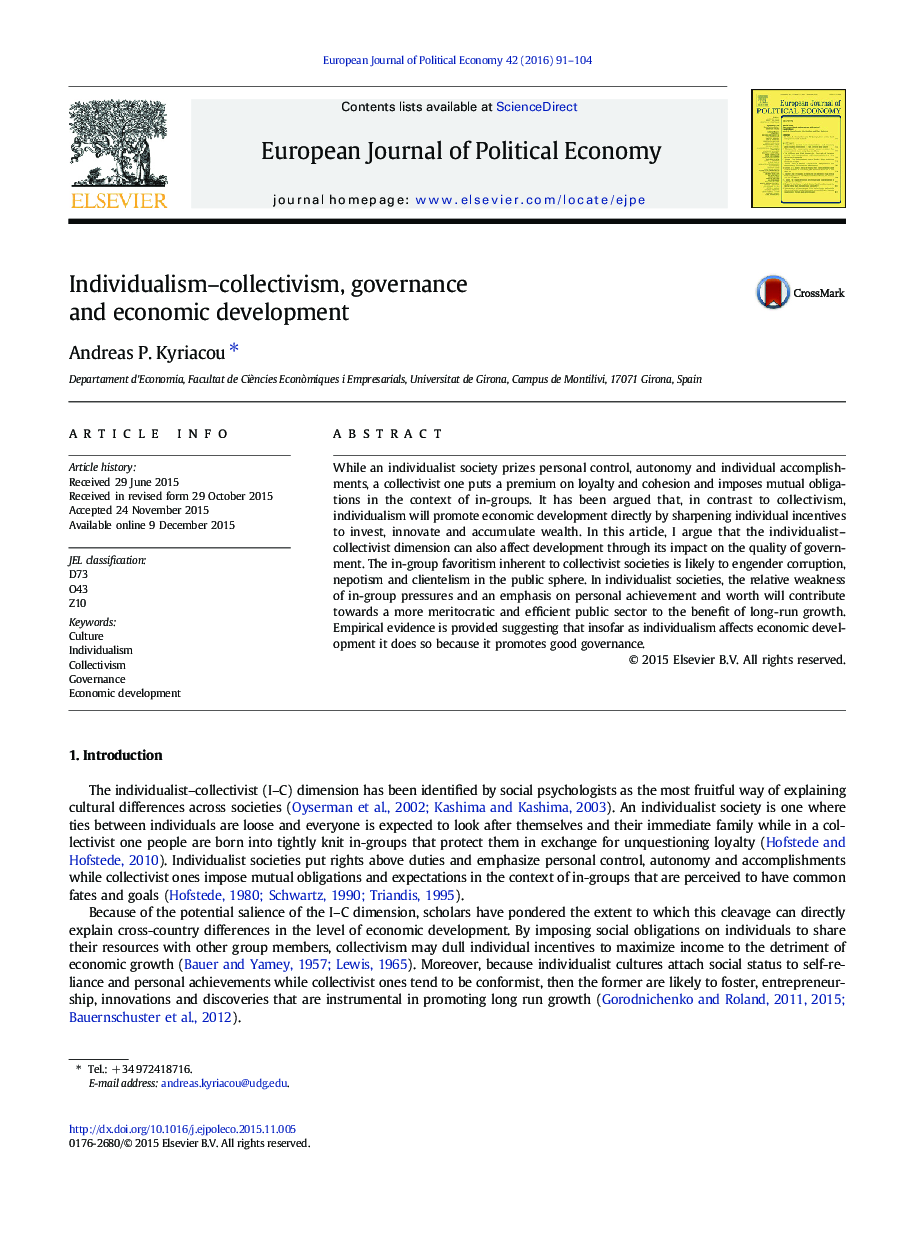| Article ID | Journal | Published Year | Pages | File Type |
|---|---|---|---|---|
| 5067848 | European Journal of Political Economy | 2016 | 14 Pages |
â¢The individualist-collectivist cultural dimension can affect government quality.â¢In-group favoritism in collectivist societies can lead to corruption and nepotism.â¢Individualism's stress on personal achievement supports meritocratic governance.â¢Individualism contributes to economic development by promoting good governance.
While an individualist society prizes personal control, autonomy and individual accomplishments, a collectivist one puts a premium on loyalty and cohesion and imposes mutual obligations in the context of in-groups. It has been argued that, in contrast to collectivism, individualism will promote economic development directly by sharpening individual incentives to invest, innovate and accumulate wealth. In this article, I argue that the individualist-collectivist dimension can also affect development through its impact on the quality of government. The in-group favoritism inherent to collectivist societies is likely to engender corruption, nepotism and clientelism in the public sphere. In individualist societies, the relative weakness of in-group pressures and an emphasis on personal achievement and worth will contribute towards a more meritocratic and efficient public sector to the benefit of long-run growth. Empirical evidence is provided suggesting that insofar as individualism affects economic development it does so because it promotes good governance.
